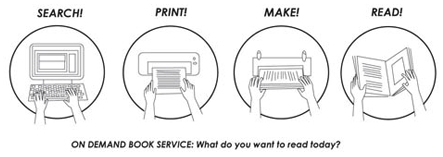University of Toronto graduate class completes their portion of the ODBS initiative in First Nations
University of Toronto's Faculty of Information graduate class, FIS2125 - Information and Culture delivered Prof. Nadia Caidi and Adam Fiser, wrapped up their 13 week course on Thursday April 9 with the delivery of their group presentations about the development of the On Demand Book Service (ODBS - http://odbs.knet.ca) initiative.

This group of information professionals and students established an ambitious mission to create an online environment to provide universal access to books and other information resources. Throughout their 13 week journey, they explored strategies to provide access to these services in Canada’s remote and rural First Nations.
Throughout the semester, they undertook the project to explore an alternative way to provide First Nations libraries and readers with books and other reading materials. It’s an idea that uses the Internet, computers, and relatively low-cost printing and bookbinding methods to bring the world of online content into the hands of readers. It’s called the On-Demand Book Service (ODBS - http://odbs.knet.ca).
The On-Demand Book Service (ODBS) enables people to choose from a list of online titles, then print and bind an actual book… all in one visit to the library (or another central space in the community)! The class conducted a few classroom experiments and tested the process in action. Their presentations (archived and available on the ODBS web site) demonstrated how excited everyone is about this ODBS project.
Their vision is to have users download and print online contents using an all-in-one book printing system that plugs into a computer and the Internet. First, users browse the ODBS web site (a portal) to search through digital book collections. These collections can be expanded to include contents that users create themselves (like newsletters, artwork, poems, recipes, or children's stories). Since it’s online, the ODBS web portal can be expanded to include other media such as video and audio files.
The next step is for users to print the pages of the book using a printer. The last step will be to bind the pages into a book using special, easy to use equipment.
The students also produced an online survey is to gather information about the potential users of this ODBS, and what kinds of information and content everyone wants and requires. They also explored the different facilities available in the First Nations to identify possible locations for these resources and services.
